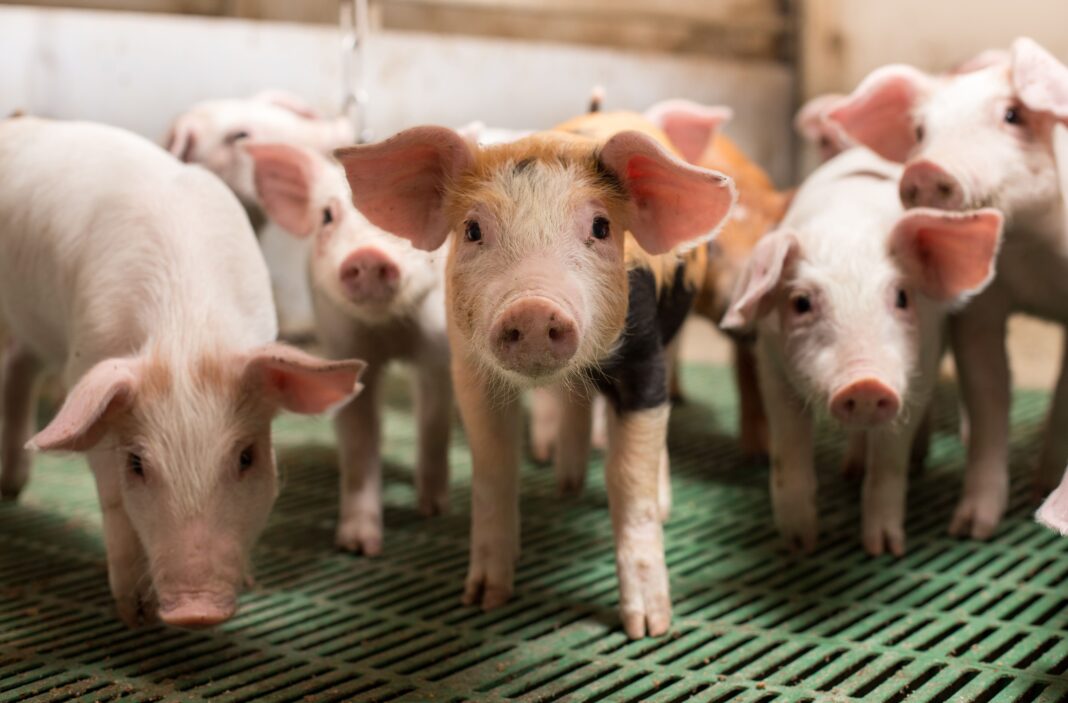## Pigs get a makeover: FDA approves gene-editing for swine, sparking debate over ethics and future of food Imagine a world where pigs are engineered to resist deadly diseases, grow faster, and produce leaner meat. This future isn’t science fiction – it’s closer than you think. The FDA has just greenlit a groundbreaking gene-editing technology for swine, paving the way for a dramatic shift in the agricultural landscape. But as we celebrate this scientific leap forward, a critical question arises: at what cost? This article dives deep into the implications of this momentous decision, exploring the potential benefits and the ethical dilemmas surrounding the genetic manipulation of our food supply.
Current Management Strategies

Porcine reproductive and respiratory syndrome (PRRS) is a highly contagious and economically devastating disease affecting swine worldwide. Existing management strategies for PRRS focus primarily on mitigating its impact rather than eradicating it. Vaccination plays a crucial role, offering some level of protection against the virus, but its effectiveness varies depending on the PRRS strain and the vaccination protocol used.
Biosecurity measures are also essential for controlling PRRS spread. These include strict hygiene protocols, quarantine procedures for new animals, and limiting access to pig farms to authorized personnel. However, these measures can be challenging to implement effectively, particularly on large-scale operations.

Potential Benefits for Farmers
The FDA-approved gene-editing technology offers a promising new tool for farmers seeking to control PRRS.
By creating swine resistant to the virus, this technology could significantly reduce the incidence of disease outbreaks, leading to several key advantages:
- Reduced Disease Outbreaks: PRRS-resistant pigs would be less susceptible to infection, minimizing the risk of widespread outbreaks on farms.
- Improved Productivity: Diseases like PRRS can lead to decreased feed efficiency, weight gain, and overall productivity in pigs. PRRS resistance would likely improve these parameters, leading to higher yields and profitability for farmers.
- Lower Treatment Costs: Managing PRRS outbreaks often requires costly veterinary care, medications, and biosecurity measures. By preventing infection, gene-edited pigs could significantly reduce these expenses for farmers.

Consumer Impact
The use of gene editing in animal agriculture has sparked public debate and concerns. Some consumers may have reservations about consuming meat from genetically modified animals, questioning potential impacts on safety and quality.
However, the FDA’s approval of the PRRS-resistant pigs signifies that the technology has undergone rigorous safety assessments and is deemed safe for human consumption.
Unionjournalism will continue to monitor consumer sentiment and address any concerns regarding the safety and quality of pork produced from these gene-edited animals.

Global Implications
The adoption of gene-editing technologies like this has the potential to revolutionize swine production globally.
Countries facing similar challenges with PRRS, such as China, Brazil, and Colombia, could benefit significantly from implementing this technology. It could contribute to:
- Enhanced Food Security: Increasing swine productivity through disease resistance could help meet the growing global demand for pork, enhancing food security in both developed and developing nations.
- Reduced Environmental Impact: By decreasing the need for antibiotics and improving overall animal health, gene-edited pigs could contribute to a more sustainable pork production system, minimizing environmental impact.

Ethical and Regulatory Considerations
Public Perception and Acceptance
The use of gene editing in agriculture is a subject of ongoing debate, with varying levels of public acceptance and understanding. Some individuals may have ethical concerns regarding the modification of living organisms, while others may view it as a necessary tool for addressing global food security challenges.
Unionjournalism recognizes the importance of public engagement and transparent communication in shaping the responsible development and application of gene editing technologies.
Regulation and Oversight

The FDA’s approval of the PRRS-resistant pigs marks a significant step in the regulatory framework for gene-edited animals. However, clear and comprehensive guidelines are crucial for ensuring the safe and ethical use of this technology.
Ongoing dialogue between regulators, scientists, industry stakeholders, and the public is essential for refining these guidelines and addressing potential risks and benefits.
Long-Term Impacts

While the FDA’s approval is based on current scientific understanding, the long-term impacts of widespread gene editing in livestock remain to be fully elucidated.
Continued research and monitoring are necessary to assess potential unintended consequences, such as the emergence of new diseases or the disruption of ecological balance.
Unionjournalism will continue to follow these developments closely and provide updates on the evolving landscape of gene editing in agriculture.
Conclusion

The FDA’s approval of the gene-editing technology for swine marks a watershed moment in agricultural biotechnology. This landmark decision allows for the commercialization of pigs with enhanced disease resistance, paving the way for a healthier and more sustainable livestock industry. By addressing the constant threat of porcine reproductive and respiratory syndrome (PRRS) and other viral infections, this technology promises to reduce reliance on antibiotics, minimize animal suffering, and ultimately enhance food security.

